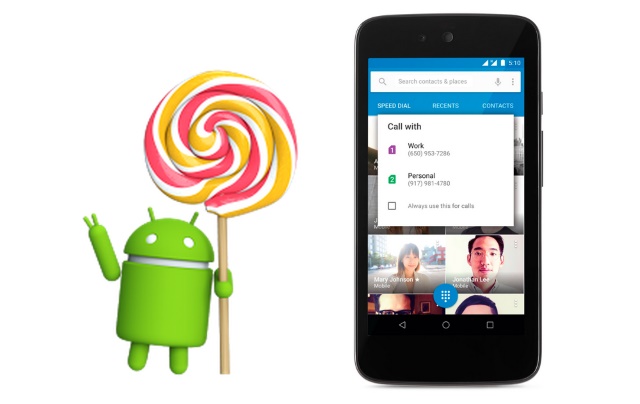
Google unwraps a new Lollipop -- Android 5.1
Many people may still be waiting for Android 5.0 Lollipop to make its way to their smartphone, but today Google released Android 5.1. This may have been a day dominated by the Apple Watch and new MacBook, but by launching an updated version of Lollipop on the same day, Google managed to avoid too much attention.
Was this done on purpose because of the small number of handsets that will be in line to receive Android 5.1? Or could it be because there are few stand out features to get excited about? There may be little new, but the performance and stability improvements will be welcomed by those eligible for the upgrade.

Google responds to Apple Watch
The newest Android "be together. not the same." commercial posted to YouTube today ahead of Apple's big smartwatch launch. The video series focuses on individuality and choice, which packs a little more punch for a wearable where one size likely won't fit all.
I like the background music, "On the Regular" by SHAMIR, in an advert by every measure focused on Apple Watch's presumed young and hipster crowd. You can be square, round, or whatever you want with Android Wear.
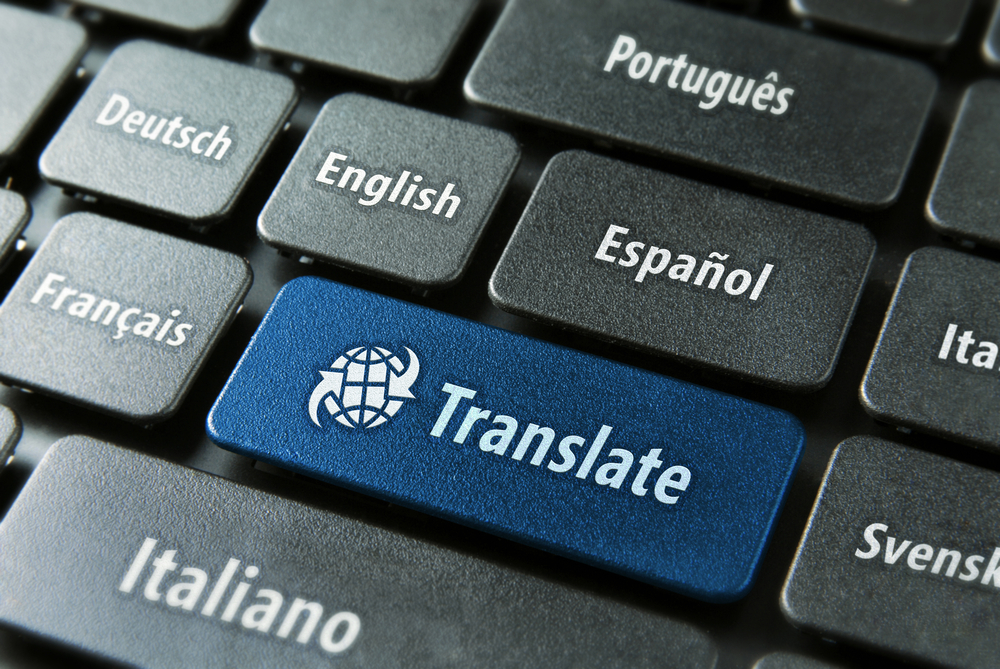
Google versus human -- how good is Google Translate?
Earlier this year Google introduced a number of enhancements to its Translate service. As well as written text this now makes it able to transcribe and translate audio.
But how does it compare to a human? Translation service Verbal Ink has done a head-to-head comparison and released the results as an infographic.

Google hit with sexual harassment complaint from ex-employee
A former Google engineer revealed on Twitter this weekend that she suffered sexual harassment whilst working at the company. In a series of tweets, Kelly Ellis said that not only had she been sexually harassed by a male colleague, but that her promotion through the company had been effectively curtailed because she would have been in a position that meant reporting to her harasser.
There is more than a hint of irony at the timing of the revelation. Google would much prefer to be seen encouraging women into technology but Ellis -- who worked on the Google+ team -- dismisses this as nothing more than "PR bullshit". She also says that she was let down by co-workers who failed to back her up.

Google celebrates women in tech for International Women’s Day
Today is International Women’s Day and in recognition of this Google is celebrating the role women have played, and continue to play, in the world of tech. It's a well-known fact that many technology companies are dominated by men -- as is the case in many industries -- but Google is keen to highlight its own Women Techmakers program.
Set up last year, the program is designed to not only encourage women to enter the male dominated technology sector, but also to promote the visibility of those who are already in place. This month saw the (very quiet) launch of the second Women Techmakers Global Event Series, but today Google wants to speak to the female technology workers of the future.

Sony will only update Xperia Z series Android phones to Lollipop
There is one complaint that is constantly levelled at the Android ecosystem, and that’s the notion that it's a platform that has become very fragmented. For all of Google's bluster about Lollipop, only a tiny proportion of handsets are actually running the latest version of the operating system. This is something that doesn't show signs of changing soon.
Sony has revealed news that will undoubtedly upset many smartphone owners -- only the Xperia Z series is in line for an Android 5.0 upgrade. No Lollipop for the Xperia T2 Ultra, the Xperia M2 Aqua or anything from the E series. A perfect demonstration of why fragmentation is so prevalent. Anyone with a non-Z series Xperia is stuck with KitKat, Jelly Bean or whatever version of Android they may have.
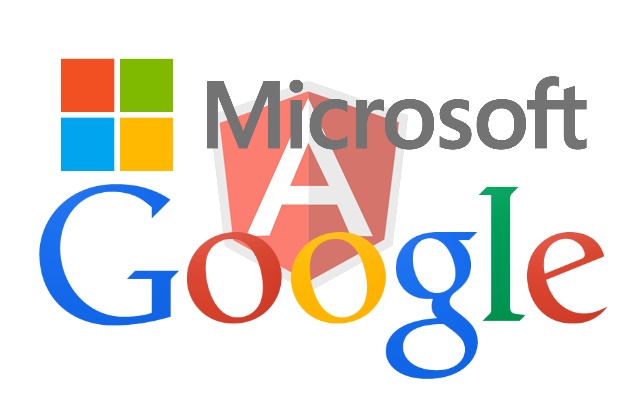
Microsoft and Google working together on Angular 2 JavaScript framework
There are unlikely partnerships, and there are unlikely partnerships -- Google and Microsoft certainly make for strange bedfellows. At developer conference ng-conf in Salt Lake City, Google's Angular team revealed that it has been working with the TypeScript Team from Microsoft to produce Angular 2.
The worlds of TypeScript and AtScript have converged, resulting in the collaborative effort that is Angular 2. The new version of the JavaScript framework will be written in TypeScript and will be used to develop the next generation of web sites and web apps.
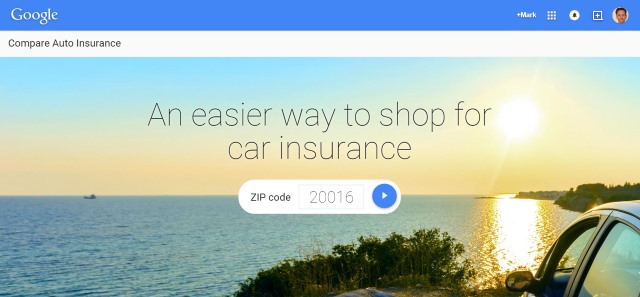
Google Compare tracks down cheap car insurance for US drivers
Referred to variously as Google Compare for U.S. car insurance, Google Compare for car insurance, and Google Compare for Auto Insurance, Google has just added a new string to its bow. The newly launched service lets drivers hunt down the best car insurance deal -- something which UK Googlers have been able to take advantage of for a little while already.
After handing over a few details like address, vehicle stats and the level of coverage required, Google will compare all of the available policies so you can pick the one that suits you the best. Don’t like a quote? Just increase the deductible and a new deal will be calculated for you.

Acer refreshes Chromebox CXI with Intel Core i3, 4K video and up to 8GB RAM
Chrome OS is a bit limited, but functional enough for many users. You see, many people do all of their computing on the web nowadays, making a browser-focused Chromebook or Chromebox a smart choice. Unfortunately, Chome OS has also become synonymous with low cost and low specs. This is partly due to the misunderstanding that the operating system is only a browser; it's not. Google's OS is a full Linux distro running a browser, and it needs all the power it can get.
Today, Acer announces a refresh to the Chromebox CXI, which should make people say "finally", with a sigh of relief. Intel Core i3, 8GB of RAM and 4K output -- this is the machine Chrome fans have been waiting for.

Apple, Microsoft and Google need just one mobile improvement -- battery life
Let’s face it, you’ve picked the mobile operating system you like. Whether you’ve opted for an iPhone, a Lumia handset or a device running Android, the chances are you’re not going to switch allegiances no matter what others may do or say to try to convince you otherwise. At the same time, few people would argue that their handset of choice is perfect.
You’ve picked your side when it comes to OS, but what about the handset itself? Apple, Samsung, HTC et al keep releasing slightly tweaked versions of last year’s handset, perhaps adding a faster processor, a larger screen and more memory. One thing is constantly overlooked, however -- battery life. And it’s time for things to change.
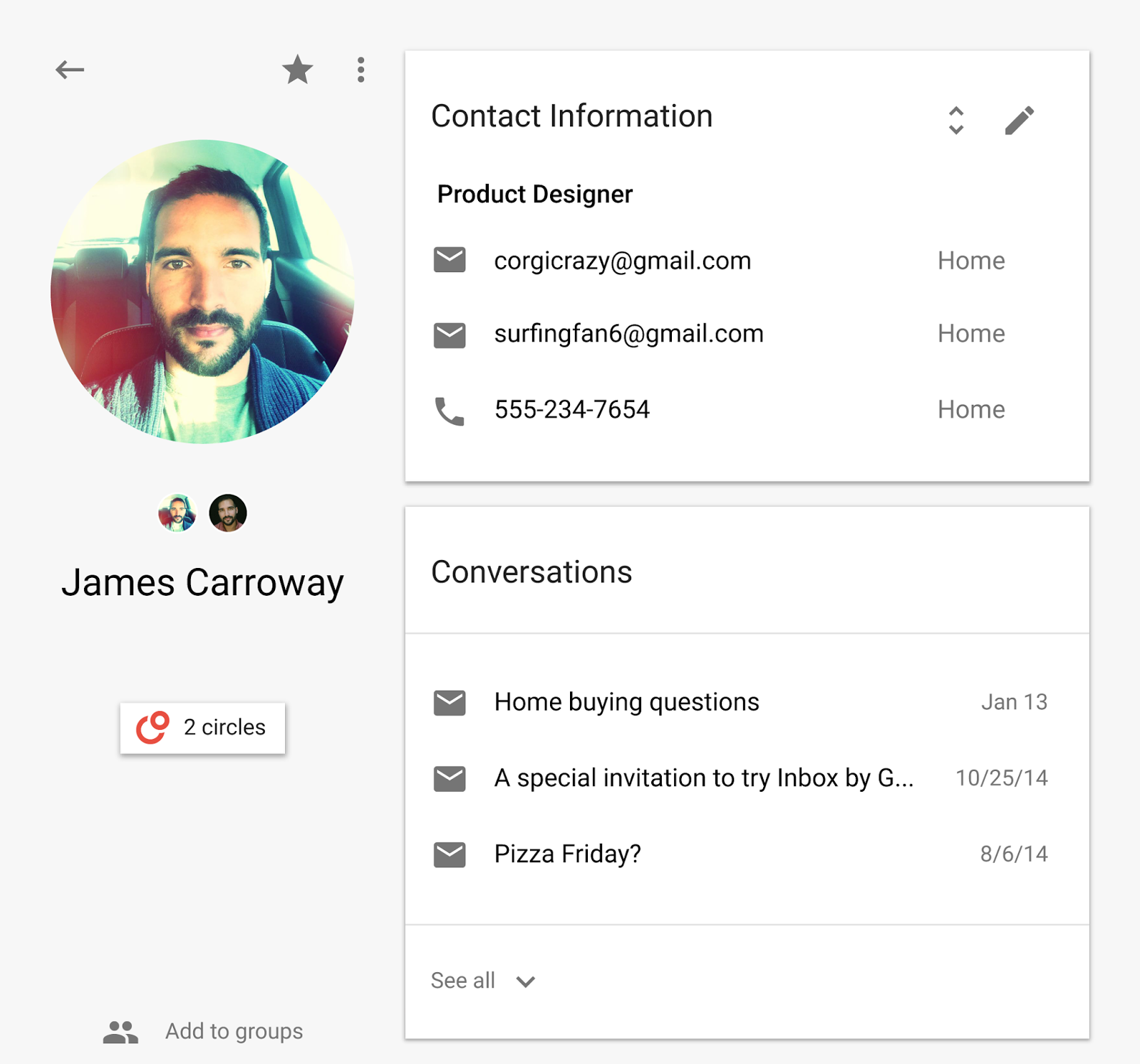
Google finally gets around to revamping Contacts, but not without complicating things in the process
Compared to other Google products, Contacts feels like an afterthought. Since its introduction, it has received little attention, as the search giant focused on its more prominent and more promising services. Do you remember the last time an update was announced? I sure don't. It's still as ugly, awkward to use and slow as you've always remembered it to be.
But not for long. Google has announced that Contacts will finally get its much-needed revamp, showcasing the improvements via a preview that's available now. The new Contacts features some pretty big changes, starting with a look that feels modern enough for a Google product unveiled in 2015.

What the FREAK? Huge SSL security flaw stems from US government backdoor
Seven hours is all it takes to crack the encryption that is in place on some supposedly secure websites. Security experts blame the US government's ban on the use of strong encryption back in the 1990s for a vulnerability that has just come to light. Named FREAK (Factoring attack on RSA-EXPORT Keys), the flaw exists on high-profile websites including, ironically, NSA.gov.
Restrictions that limited security to just 512-bit encryptions were lifted in the late 90s, but not before it was baked into software that is still in use today. The ban on the shipping of software with stronger encryption apparently backfired as it found its way back into the States. Security experts say the problem is serious, and the vulnerability is relatively easy to exploit.

Google reneges on its promise of encryption by default for Lollipop devices
Not wanting to be outdone by Apple, when it was announced that iOS 8 would encrypt data by default, Google felt compelled to follow suit. Back in September Google said that in Lollipop "encryption will be enabled by default out of the box, so you won't even have to think about turning it on". But six months is a long time, and it now seems that Google has had a change of heart.
Well, as noted by Ars Technica, many of the Lollipop handsets appearing at MWC 2015 -- including the Samsung Galaxy S6 -- do not have encryption enabled. Of course there is nothing to stop users from manually enabling it, but that's not really the point; the idea was that you "won't even have to think about turning it on". So what gives?
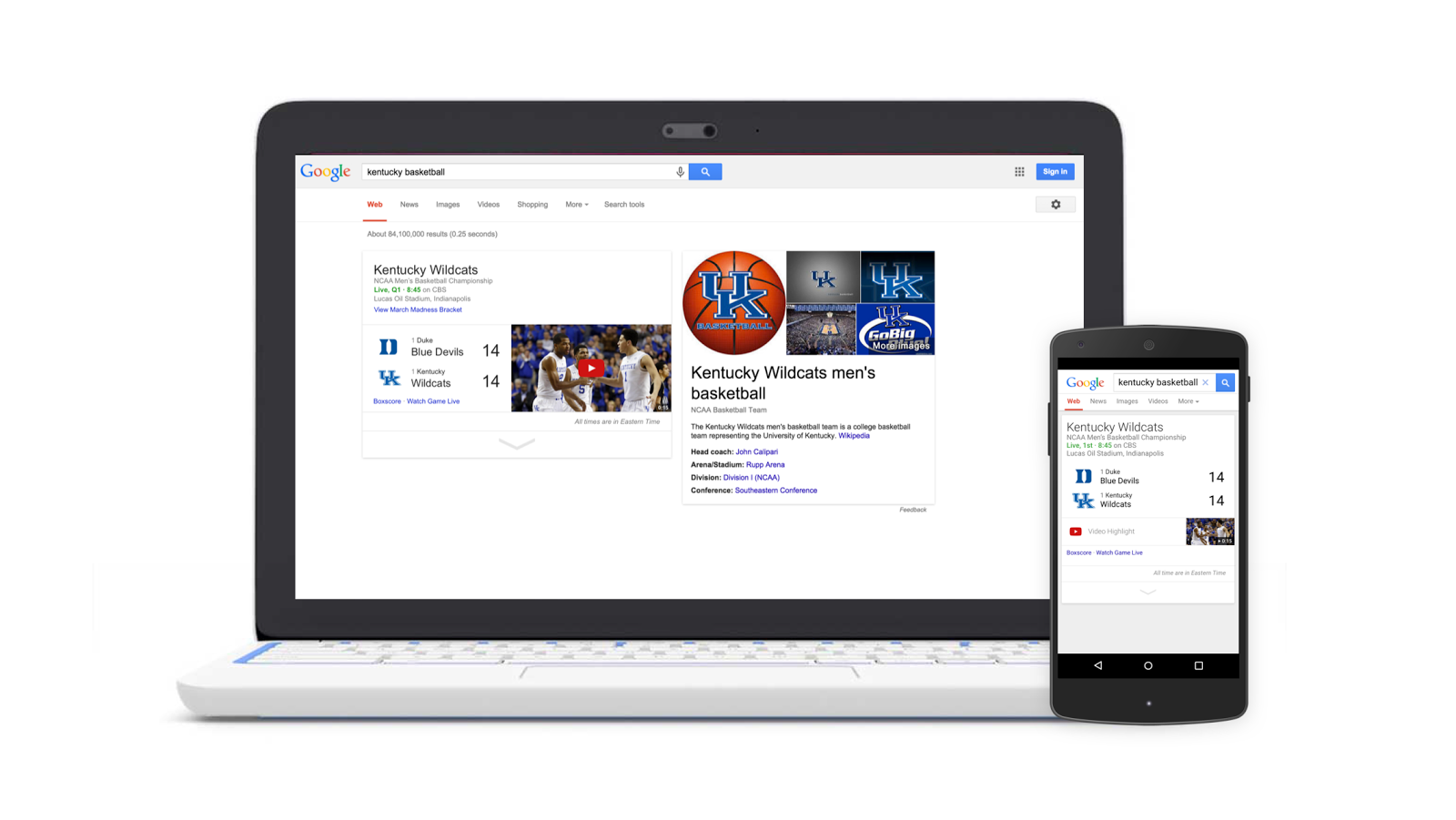
YouTube gets a case of March Madness as NCAA tournament approaches
March Madness is almost upon us. For those outside the US this may sound a bit weird -- almost like what people claim to happen during a full moon. In truth it's actually more mundane, though many folks may argue that point. It's the college basketball tournament that culminates in the crowning of a school as the new national champion. It's the time of year when even non-gamblers lay down money and fill out brackets.
Can you watch it online? Well, sort of. A special YouTube channel is being set up to bring you some of the action. The selections for participation will be made March 15th and the games get underway on the 17th. The grand finale actually supersedes the month, with a championship game played on April 6th.

Apple Pay security scam nets fraudsters millions of dollars
The big names in tech are falling over themselves to get new payment systems out of the door at the moment. At MWC, Sundar Pichai confirmed Android Pay is on its way, and we've also learned about Samsung Pay from the Barcelona event. The convenience of paying with a smartphone is undeniable, but there are unavoidable security concerns.
Having been adopted by millions of Americans -- and with plans to expand into Europe and beyond -- Apple Pay is serving to highlight important security problems. Lax verification systems used by banks coupled with criminals exploiting stolen credit cards and IDs mean Apple Pay is used to make millions of dollars worth of fraudulent purchases. So how does it work?